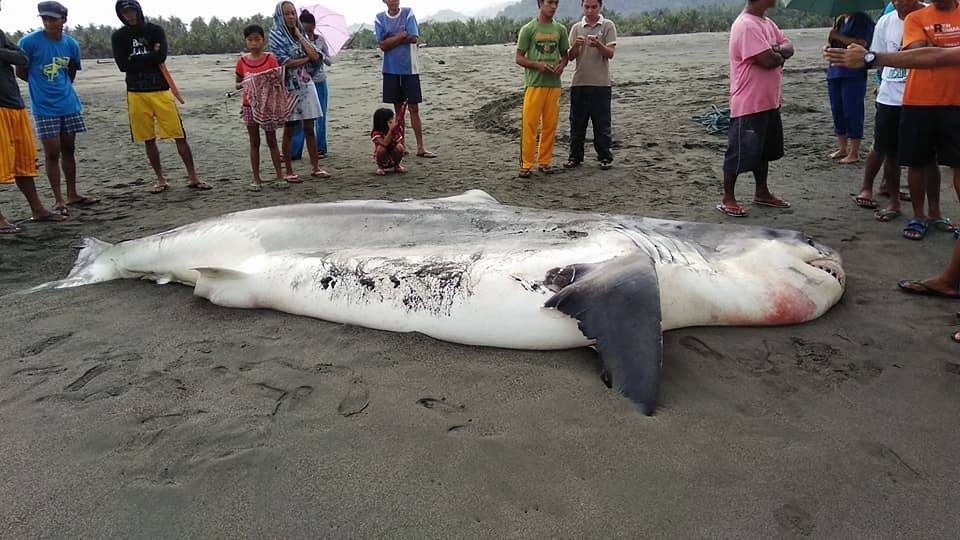SUMMARY
This is AI generated summarization, which may have errors. For context, always refer to the full article.

MANILA, Philippines — Residents of Barangay Lobbot, Dipaculao, Aurora, got a big surprise Wednesday morning, January 24, when they woke and found a dead 17-foot Great White Shark on their beach.
Photos of the dead shark posted on Facebook went viral garnering almost 4,000 reactions and 12,000 shares. The post raised fears among netizens since the coastal province of Aurora is famous for its surfing spots. (READ: WATCH: How sharks are killed at Pasay market)
Gregg Yan, a conservation advocate and Director for Communications of Oceana Philippines, said that residents should not fear the latest shark sighting.
“Though potentially dangerous, shark attacks are extremely rare – and humans annually kill from 70 to 100 million sharks yearly for their liver, meat and of course – their fins. They have far more reason to fear humans than we do them,” Yan said. (READ: 10 things more likely to kill you than a shark)
Great White Sharks (Carcharodon carcharias) are the world’s largest predatory fish. They gained notoriety after the success of the Steven Spielberg movie Jaws.
Great White Sharks grow about 15 feet, though giants exceeding 20 feet have been recorded. Females are slightly larger. This is significant, for though we know this species ranges through all the world’s oceans, very few people have seen it in Philippine waters, making it among the rarest sharks in the country.
The International Union for Conservation of Nature (IUCN) classifies Great Whites as Vulnerable (READ: Every shark counts)
Locally, this species is protected under Republic Act 10654 or the amended Fisheries Code. No one is allowed to harm, capture or kill one. If caught, offender will face a penalty of 12 to 20 years imprisonment and/or a fine of P120,000, forfeiture of their catch, and the cancellation of their fishing permit.
Many speculated the cause of shark’s death but according to Yan, no predatory shark of this size can survive without sizeable numbers of prey like mackerel or tuna. Its presence means that Philippine waters are still teeming with life, said Yan. (READ: Expedition Shark: Why we need to protect these predators)
“Let this be a reason to galvanize us to protect not just charismatic species – but our seas,” Yan urged.
To avoid possible health risk, Dipaculao Mayor Joanna Salamanca has ordered the burial of the shark on the same day it was discovered. – Rappler.com
Add a comment
How does this make you feel?
There are no comments yet. Add your comment to start the conversation.